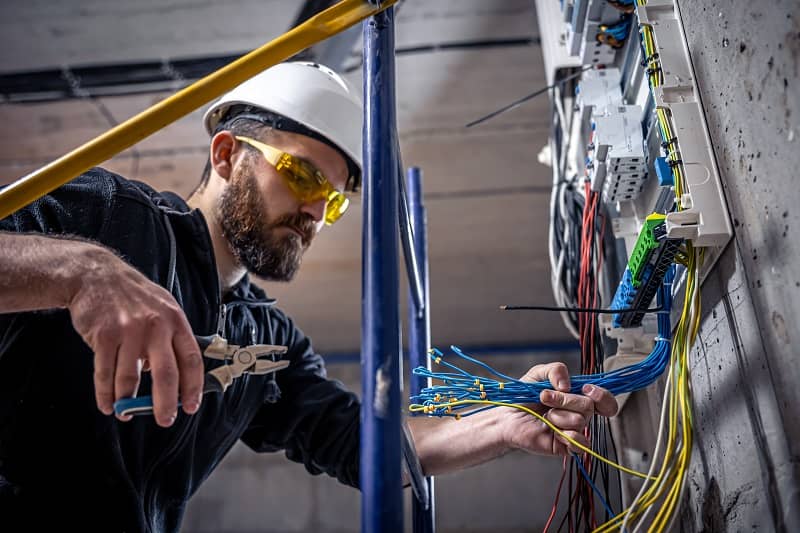Despite being one of the largest employers in the entire US economy, there are a lot of misconceptions floating around about the construction industry. Many of these misunderstandings or downright falsehoods are keeping prospective craftsmen out of the field. Here, we’ll set the record straight once and for all by clearing the air on some of the most common misconceptions about the field.
Myth #1: The work is dangerous.
Construction work is naturally more dangerous than other sectors. However, it also places greater stress on employee safety than any other industry. There are countless federal, state, county, and industry-specific rules and regulations that employers must follow. All employers are required by law to maintain a safe and secure work environment.
Furthermore, craftsmen are regularly put through training exercises to ensure they remain fresh on the rules and up-to-date on the latest developments. On larger job sites, you might even see safety officers whose sole job it is to ensure the security of the entire team.
Myth #2: It doesn’t pay well.
The construction industry has a lower barrier of entry than other sectors, meaning even a high school education is sufficient to earn a good living as a craftsman. Unfortunately, there’s usually an unspoken assumption that this means the construction industry doesn’t pay well. According to BLS data, craftsmen can earn a competitive income even with minimal educational requirements. General construction laborers earn an average of $37,080.
More specialized craftsmen tend to earn more for their specific skills. For example, a heavy equipment operator has an average income of $49,100 and construction inspectors can earn a salary of $62,860. When you first get started in the construction industry, you’ll already be making 60% of what the most experienced craftsmen earn. The more skills you develop the higher your pay will increase.
Myth #3: There’s no upward mobility.
Many people view the construction industry as a dead-end for their professional development. It’s not clear how this misconception developed, but it couldn’t be further from the truth. The US has one of the largest construction markets in the world with over 1.2 trillion dollars spent each year which accounts for 4.3% of the country’s overall GDP.
That translates into a significant number of job opportunities. In fact, the Bureau of Labor Statistics reports that construction laborers will see a 5% growth in demand over the next ten years with 81,000 jobs added – a rate that’s faster than average for other industries.
Myth #4: It’s not welcoming to women.
One of the most outdated and unfortunate stereotypes is that the construction industry isn’t inviting to women. Every year, more and more women are joining the trades. Businesses are doing their part by launching special initiatives and offering helpful resources for women interested in the trades.
Currently, the workforce in the manufacturing and construction industries comprise 29.5% and 10.9%, respectively. It’s now simply a matter of getting the word out and encouraging more women to apply if it’s something they feel is a good fit for their personal and professional goals.
Myth #5:
In the 21st century, people have been oversold the value of a college education. Many people wrongly assume that it’s impossible to land a well-paying job without at least a bachelor’s degree. The construction industry easily proves this misconception wrong. Even if you enter into the field with a high school education, you’ll still need to undergo thousands of hours of training and education to achieve the required qualifications and licensing.
With every promotion, you’ll learn more skills, partake in more training, and develop more capabilities. Craftsmen aren’t paid to swing around a hammer all day. They’re paid to construct skyscrapers, operate expensive state-of-the-art equipment, complete complex welds, and much, much more.
Having trouble finding a competitive job offer? Visit IamMadden.com for a comprehensive and regularly updated list of exciting opportunities. Madden Craftsmen has decades of experience helping connect qualified professionals and rewarding construction employers. Don’t have any skills yet? No problem! With our apprenticeship program, you develop the skills you ended while possibly earning some money on the side.




